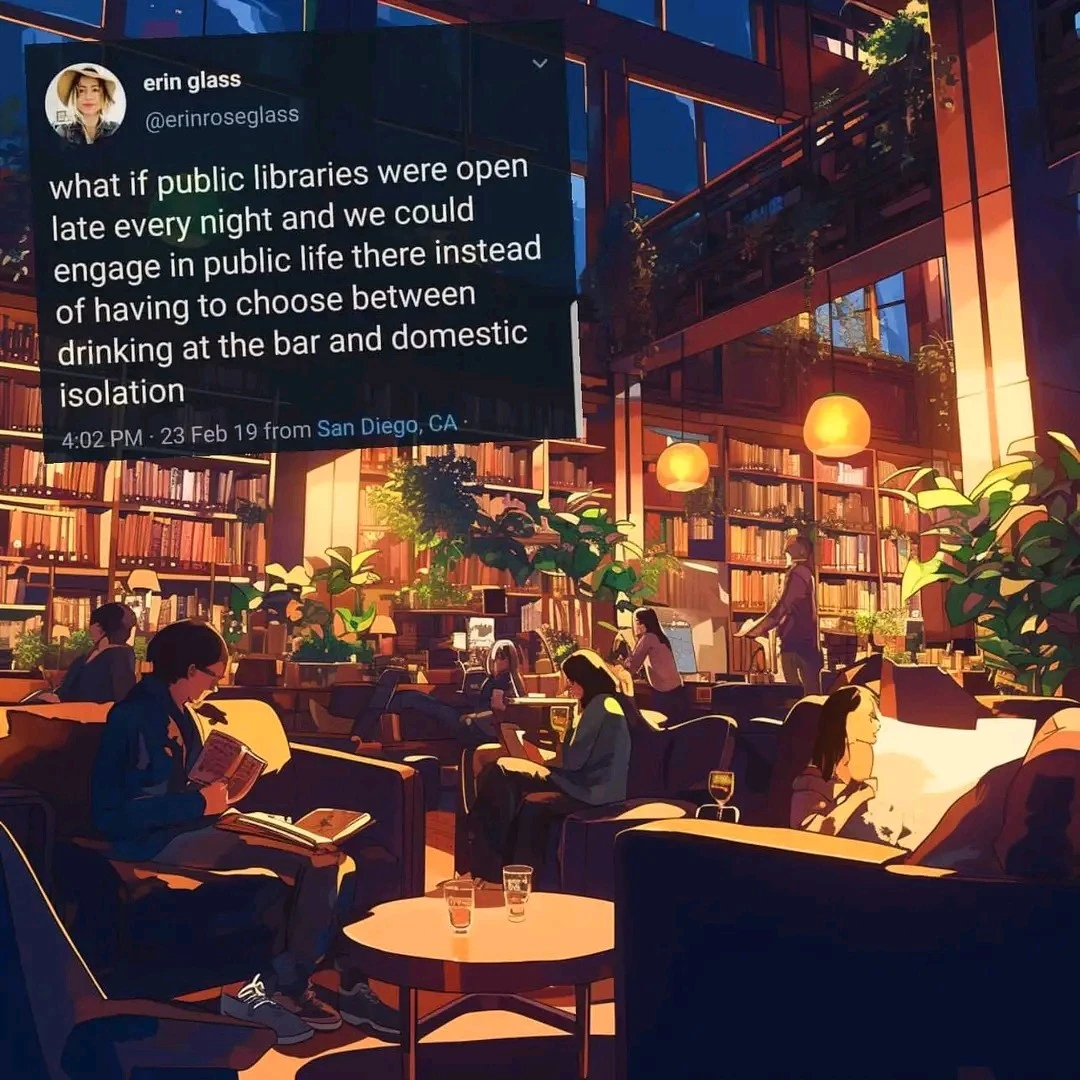Live Better, With Less
The concept of simple living is difficult to clearly define, and means something different to everyone, but it does have one similarity across most of the descriptions that we've compiled: less.
Just what exactly people are doing better with less of, exactly, varies a lot. You might find that not all of these topics are for you. And that's okay! The internet is an amazing place with many different communities. While we allow all different kinds of simple living related content here, there are also many more specific communities that may cater to you. If you know of notable places in the Fediverse that deserve a shout here, let us know!
Here are some examples of some of the common themes of what people often speak of going with less of when it comes to simple living, and a list of what that might look like:
Less Stuff
For one reason or another, some of us feel like we're drowning in stuff. Excess possessions fill one's living space, make moving more difficult, and require more cleaning and maintenance. Much of it isn't even stuff that we really wanted, but stuff that we felt pressured or compelled to buy.
- Decluttering
- Going on a low-buy, or no-buy
- Joining a tool share, or thing library
- Learning about the Story of Stuff
Less Work
A full 40+ hour work schedule can leave a lot of us feeling very unfulfilled and without enough time to do what we actually love. And though it can be financially difficult, with careful planning it is possible for many to trim down to fewer hours, or to retire early.
- Finding a more fulfilling job
- Working fewer hours at your current job to allow for a better work–life balance
- Continuing to work, but saving money and reducing expenses in order to retire early (often known as "lean FIRE")
Less Stress
This one is harder to qualify, but there are many ways to reduce stress in one's life. Removing the stressors is the best option, but that would encompass far too many topics to link here.
- Meditating
- Cognitive behavioural therapy, or Stoic practice
- Learning to set and uphold personal boundaries
Less Technology
In the modern day, many people can feel like they're "chained" to their phone, or to technology in general. Social media is engineered to keep people in a cycle of engagement, often preying on outrage to keep up scrolling, clicking, and arguing.
- Taking an "offline day"
- Switching to a feature phone
- Using apps to limit notifications, and/or apply timers to your screen time
- Disengaging from social media
So, what does Simple Living mean to you?
Part of the difficulty of creating a clear description for this community is that simple living can mean something very different to each person you ask. Exactly how someone lives better with less is entirely up to them. This is why this community cannot help you determine a direction if you don't know what you want out of your life.
Imagining a simpler life for yourself requires self-reflection. Mindfulness is an important skill that can help you achieve this goal.
Eliminating the Bad
During moments where you find yourself overwhelmed by something, take a moment to center yourself in the moment and analyze your thoughts and feelings.
- What is causing you stress in this moment?
- How could you take steps to reduce this stressor in your life?
Every time you move towards reducing these stressors, you're taking a step towards simple living.
Cultivating the Good
But simple living isn't just reductive! We also need to cultivate happiness in our lives in the extra space and time that we carve out of our lives through that reduction, and focus on what's truly important. When you find yourself having a moment where you're experiencing joy, take a moment to center yourself in that moment and ask yourself some questions:
- Why am I so happy in this moment?
- Is this something that I can cultivate more of in my life?
And finally, there is the more neutral task of reflecting on your longterm desires. You can do this any time you have the time, but it is likely to be more productive once you've achieved some clarity about what you truly like and dislike about life.
- What does an ideal day look like for you?
- How do you wake up? On your own terms, or with an alarm? Early, or late?
- How do you do about your morning routine What kind of rituals do you have?
- What kinds of activities do you carry out?
- Do you spend time with other people?
- Is your environment different in this ideal day than it is in your current life? How does it differ?
- What does an ideal week look like to you?
- Is your ideal day something that you would only need on weekends, or is it something that you'd like to experience more often than that?
- If you do have work in your ideal week, is it structured, or unstructured (self-directed) ? How many days per week do you work? How many hours per day?
The intention of these exercises is to get to the root of what you truly value. Consider this the framework for the simple life you aspire to — it may just be a dream that you try to incorporate aspects of into your daily life, or it may be a longterm goal that you work towards.
